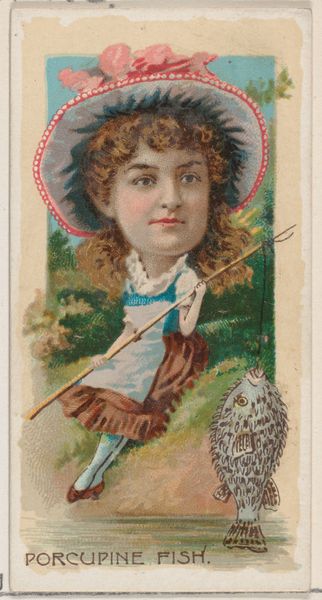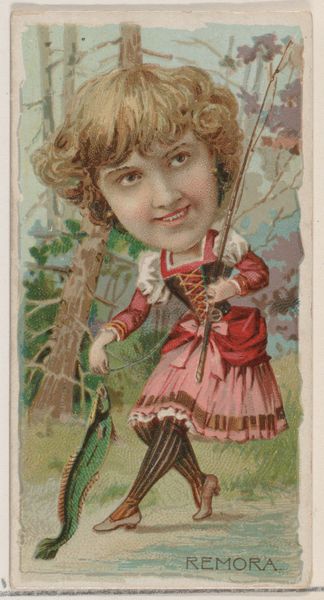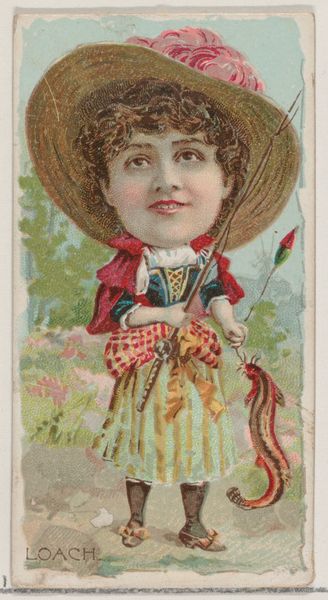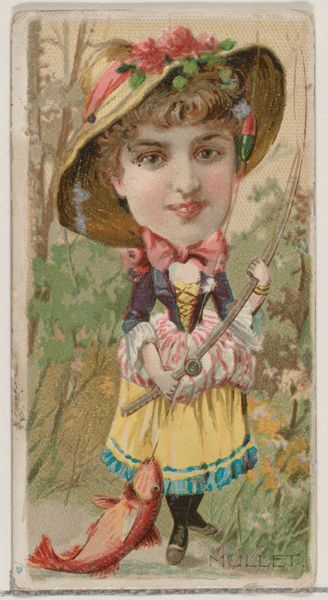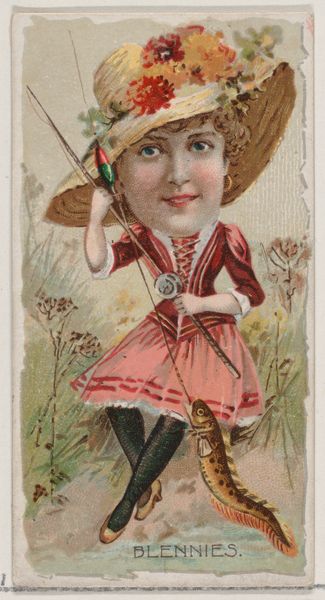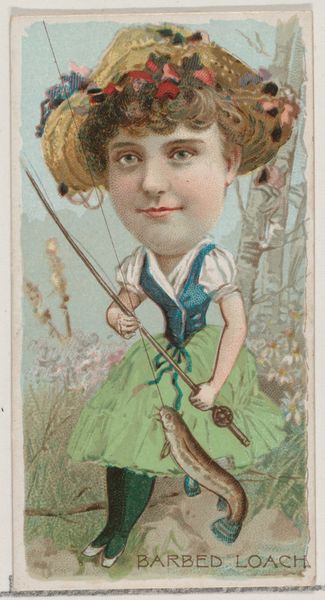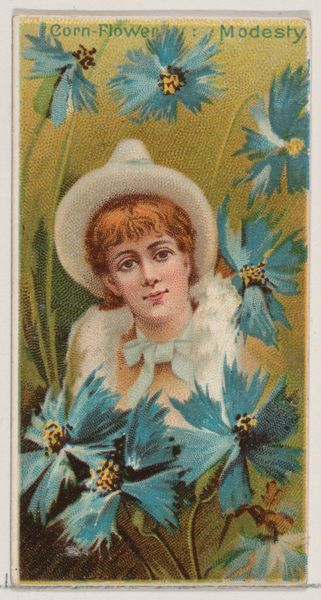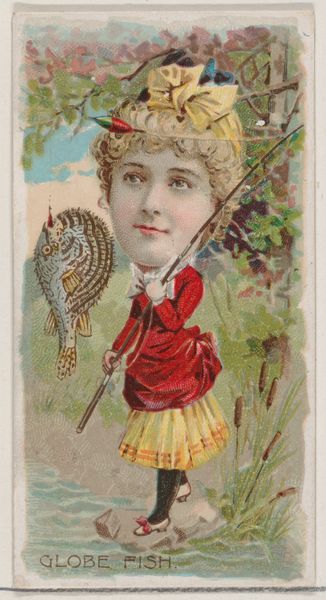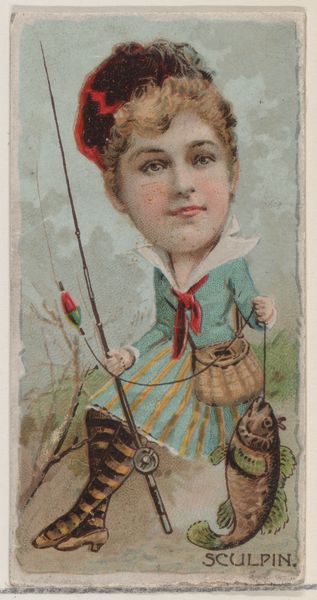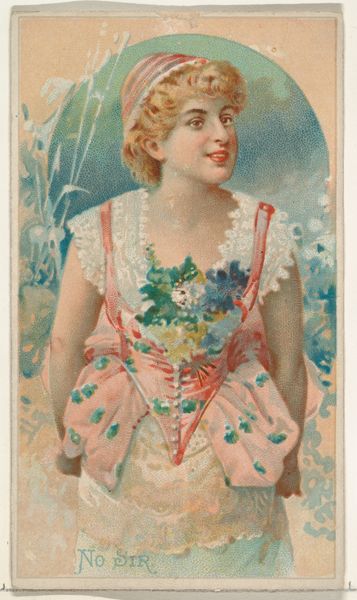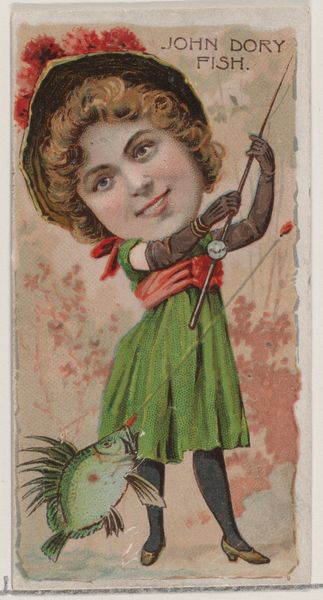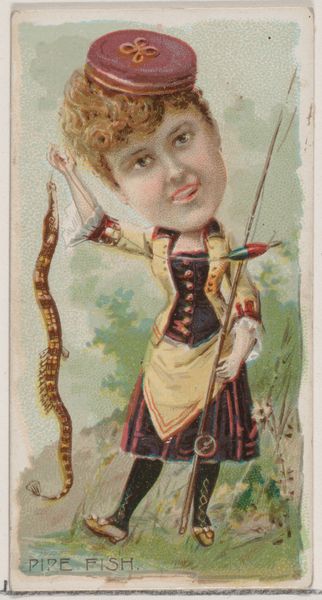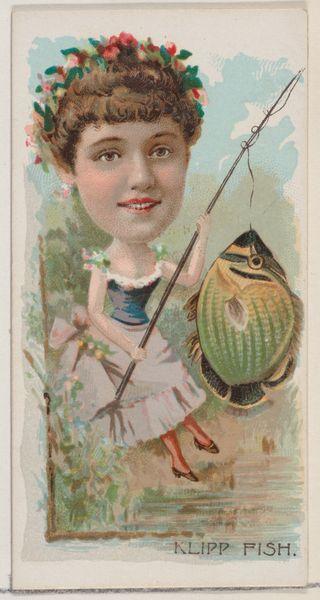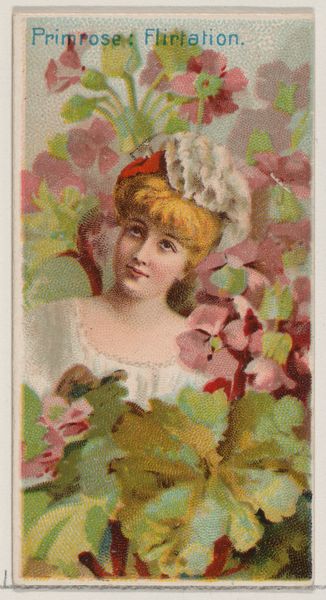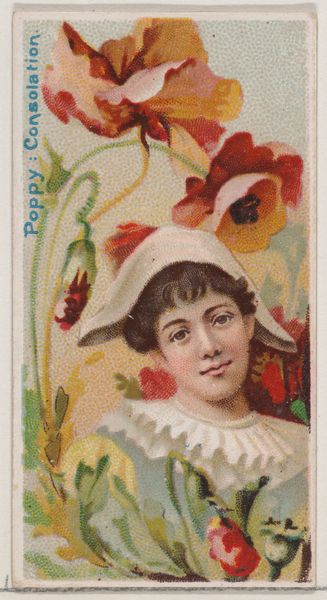
Catfish, from the series Fishers and Fish (N74) for Duke brand cigarettes 1888
0:00
0:00
Dimensions: Sheet: 2 3/4 × 1 7/16 in. (7 × 3.6 cm)
Copyright: Public Domain
Curator: Well, here's something curious. We have "Catfish, from the series Fishers and Fish," a lithograph printed in 1888 by Knapp & Company. It was intended as a trade card for Duke brand cigarettes. Editor: Trade card? That’s a strange choice for an image... It's certainly eye-catching with that oddly proportioned girl standing next to, I presume, the unfortunate catfish she just caught. There's a disconnect – almost a forced joviality – between the cute, cartoonish style and the reality of fishing. Curator: It is peculiar. But let's consider the symbolism. The girl, adorned in her striped blue shirt and bright red hood, she becomes an almost archetypal symbol of youthful leisure, evoking images of innocence and harmony with nature. But in this particular image, this naive tranquility clashes quite violently with the death of the catfish at her feet. Editor: Precisely. And this highlights the social and historical context. Cigarette cards often presented idealized visions of leisure and life, subtly shaping consumer perceptions. But the catfish! This is not some symbol of sport, but rather of death; the contrast isn't accidental, it reflects the culture of consumption the cards themselves are embedded in. Duke cigarettes were consumed for social appeal; is there something to be found here about the nature of that society and the "innocent" young girl smiling after committing violence? Curator: It also brings up interesting associations with Ukiyo-e traditions. The genre’s focus on ephemeral beauty finds a distant echo in the fleeting nature of a trade card, a disposable artwork. Ukiyo-e traditionally explores impermanence as beauty: Is it so here? The card as a short-lived advertisement? Or in the death of the catfish? Editor: Hmm, that could also suggest it is another exploitative social system like fishing. What do you suppose they were thinking back then when printing it, in terms of who would be lured in by such art? Curator: Considering how mass media manipulates social desires by shaping their representations of beauty and fulfillment, the question becomes how complicit we are today, buying the "Duke" products of our era. Editor: The art certainly doesn't offer a comfortable answer. It acts more like a fractured mirror to society, its reflection purposefully contorted for the consumer to fill the empty space in between. Thank you, cigarette card. Curator: An odd little piece of advertising history.
Comments
No comments
Be the first to comment and join the conversation on the ultimate creative platform.
